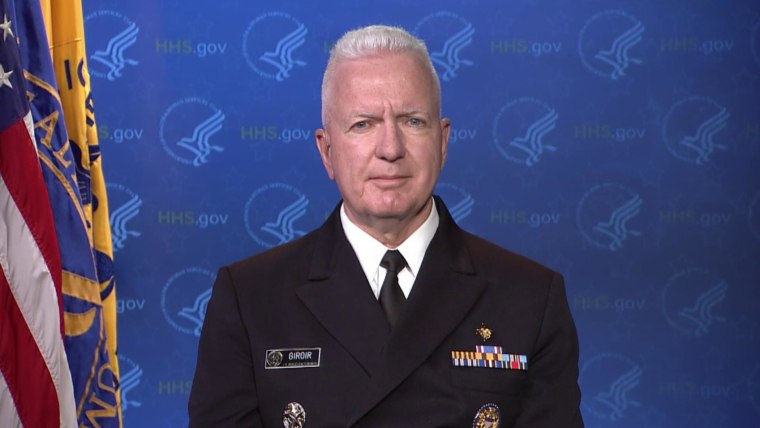People who have been confirmed with mild to moderate COVID-19 can leave their isolation without receiving a negative test, according to recently revised guidance from the Centers for Disease Control and Prevention.
Increasing evidence shows that most people are no longer infectious 10 days after they begin having symptoms of COVID-19. As a result, the CDC is discouraging people from getting tested a second time after they recover.
“For most persons with COVID-19 illness, isolation and precautions can generally be discontinued 10 days after symptom onset and resolution of fever for at least 24 hours, without the use of fever-reducing medications, and with improvement of other symptoms,” the CDC says.
For people who have tested positive but don't have symptoms, "isolation and other precautions can be discontinued 10 days after the date of their first positive RT-PCR test for SARS-CoV-2 RNA.”
Dr. Joshua Barocas, an infectious disease physician at the Boston Medical Center, said many doctors have felt for months that a negative test to end isolation was not a practical solution.
“What we had seen clinically very much aligns with these new guidelines, at least for the vast majority of people,” he told NBC News. “It's one of those cases in which the CDC is now catching up to the clinician.”
There are exceptions for the 10-day guidance, including people with compromised immune systems who may be infectious for a longer period of time.
“For the average immunocompetent person, I think we can feel quite confident that after 10 days, they're no longer contagious,” Dr. William Schaffner, an infectious disease specialist at Vanderbilt University told NBC News.
In a briefing with reporters last week, Brett Giroir, the assistant secretary for health at the Department of Health and Human Services, said that a required negative test after a confirmed infection was because of early outbreaks in cruise ships where people were quarantined and looking to get out.
“That is no longer needed, and it is medically unnecessary,” he said.
The CDC also notes that virus fragments have been found in patients up to three months after the onset of the illness, although those pieces of virus have not been shown to be capable of transmitting the disease.
“You could be positive by PCR test long after no longer being infectious,” Giroir said during the Health and Human Services briefing July 14. Some people were getting tests four to six times. You don’t need to be be retested unless you’re critically ill or immunosuppressed in which you could shed virus longer.”
A PCR or polymerase chain reaction test detects coronavirus genetic material that’s present when the virus is active. Clinicians typically collect a nasal or throat sample from someone with a long nasopharyngeal swab.
Joseph Petrosino, the chair of virology and microbiology at the Baylor College of Medicine, said: “ I think one of the nice things about the CDC recommendation was that they pulled together a lot of data from a lot of different places from around the world that show that a lot of these long-term shedders are not associated with new infections or virus transmission.”
Schaffner said that it will take time for these recommendations to become widely adopted but once they do, they will have a modest effect on testing backlogs that are plaguing the U.S. health system.
“Our testing circumstances in the United States are not anywhere close still, to what they need to be,” he said. “The question is how well do the testing resources fulfill the needs of our country? And on that score, it's C minus at best.”
“Anything we can do to help that, the better,” he added.
The recommendation of 10 days is specifically for those who test positive for the coronavirus and have been asked to self-isolate. It doesn’t apply to people who need to quarantine to keep from possibly spreading the virus. The incubation period for the virus is 14 days, health experts say, so anyone who has been exposed to the virus would need to quarantine to see if they become sick.
Most people who are infected develop symptoms after about five days, although approximately 20 to 40 percent who are infected don’t develop any symptoms.
COVID-19 - Latest - Google News
July 25, 2020 at 04:54AM
https://ift.tt/2CKYLCh
CDC changes COVID-19 guidance on how long patients need to be isolated - NBC News
COVID-19 - Latest - Google News
https://ift.tt/2VQ2gy8


No comments:
Post a Comment